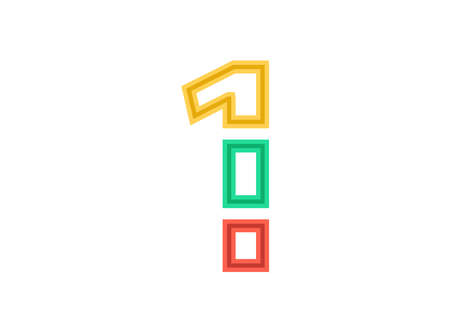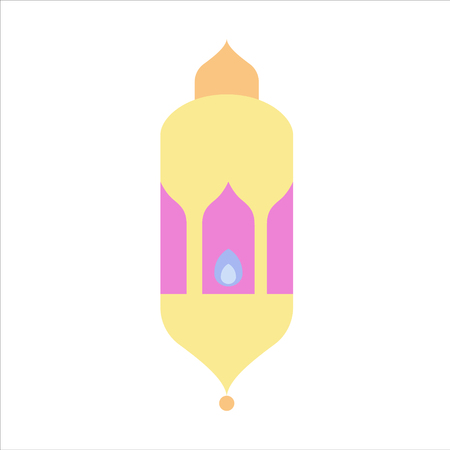Introduction to Child Astrology in India
Child astrology, known as “Kundli” or “Janam Patri” reading in India, has deep roots in the country’s ancient traditions. For centuries, Indian families have relied on astrological charts to gain insights into a child’s personality, future potential, and life path. This practice is not limited to one region or community—it is prevalent across diverse cultures, languages, and states of India. In both urban metros like Mumbai, Delhi, and Bengaluru, as well as in rural villages, parents seek astrologers guidance soon after a childs birth. The tradition involves preparing a detailed horoscope based on the exact time and place of birth, which is believed to reveal important aspects of the childs destiny. With modernization and the influence of technology, the presence of child astrology has grown further; today, many families consult online astrologers or use astrology apps for instant guidance. Despite changes in lifestyle and education levels, the belief that astrology plays a crucial role in shaping a child’s future remains strong among Indian households. As we explore deeper into its significance, it becomes clear that child astrology continues to bridge traditional wisdom with modern aspirations.
Cultural Significance of Jyotish Shastra for Children
Jyotish Shastra, or Vedic astrology, holds a special place in Indian families, especially when it comes to children. Across the vast and diverse regions of India, families depend on astrological guidance to make crucial decisions for their children. This ancient science is deeply woven into cultural rituals and day-to-day life, influencing milestones such as naming ceremonies, education choices, and even health-related decisions.
Astrology at Major Childhood Milestones
For many Indian parents, consulting an astrologer is one of the first steps after a childs birth. The childs Janam Kundali (birth chart) is prepared using the exact date, time, and place of birth. This chart becomes the foundation for making informed choices at various stages of childhood. Here’s how astrology influences key milestones:
| Milestone | Astrological Guidance | Cultural Practice |
|---|---|---|
| Naming Ceremony (Namkaran) | Name selected based on child’s horoscope and favourable letters | Pandit chooses auspicious time and name; celebrated with family rituals |
| Starting Education (Vidyarambham) | Determining auspicious date for beginning studies | Special puja conducted; child writes first letters under priests guidance |
| Health Concerns | Kundali checked for doshas or malefic planets that may affect health | Remedial poojas or wearing specific stones recommended |
| Upanayanam (Thread Ceremony) | Date and rituals planned as per planetary positions | Marks the child’s formal entry into education and spiritual learning |
Regional Variations in Astrological Beliefs
The influence of Jyotish Shastra varies across different states and communities in India. For example, in South India, Nakshatra (birth star) plays a significant role in naming traditions, while in North India, the Lagna (ascendant) and Rashi (moon sign) are often prioritized. Despite these differences, the underlying belief remains consistent: astrology is a guiding force that ensures prosperity, protection, and well-being for children.
Family Bonding Through Astrology
The practice of consulting astrologers also serves to strengthen family bonds. Elders pass down knowledge about rituals and astrological customs to younger generations, ensuring cultural continuity. In both urban metros like Mumbai and rural villages of Uttar Pradesh, these traditions adapt but never lose their essential value. Ultimately, Jyotish Shastra is not just about predicting the future—its about nurturing hope and confidence in every step of a childs journey.

3. Modern Adaptations and Popular Practices
In today’s India, child astrology continues to hold a significant place in family life, but its methods have evolved with time. Traditionally, astrologers would rely on ancient texts such as the Brihat Parashara Hora Shastra and the use of handwritten Panchang to prepare a child’s horoscope or Kundli. However, with technological advancements and increasing digital literacy across urban and rural areas, the process has become more accessible and user-friendly for Indian parents.
Now, many families prefer to use Kundli generation apps which are available in multiple Indian languages like Hindi, Tamil, Telugu, and Marathi. These apps allow parents to input their child’s birth details—date, time, and place—and instantly receive a detailed horoscope based on Vedic astrology principles. The accuracy and instant results provided by these digital tools have made them highly popular among young couples and nuclear families who may not always have easy access to a traditional astrologer.
Despite this shift towards technology, most families still seek validation from experienced astrologers (Jyotishis) before making important decisions regarding their child’s future. In many cases, the app-generated Kundli serves as a starting point for consultations. The blend of tradition and modernity is evident as astrologers now use both their knowledge of classical scriptures and software-based chart analysis to provide guidance. Video consultations via WhatsApp or Zoom are also becoming common, especially in metropolitan cities like Mumbai, Bengaluru, and Delhi.
This harmonious integration of technology with age-old practices reflects the adaptability of Indian culture. While parents appreciate the convenience offered by mobile applications, they still value the personal touch and wisdom that comes from interacting with an experienced Jyotishi. Whether it is for naming ceremonies (Naamkaran), school admissions based on auspicious dates (Muhurta), or addressing health concerns indicated in the Janam Kundli, modern tools have only strengthened the role of astrology in contemporary Indian parenting.
Role of Child Horoscope (Kundli) in Decision Making
In modern India, the child’s horoscope, or Kundli, plays a significant role in family decision-making. Many Indian families rely on astrological guidance for important choices that shape a child’s future. Let’s explore how a Kundli influences key parental decisions:
Choosing Auspicious Timings (Muhurat)
One of the first ways Kundli impacts a child’s life is by determining auspicious timings, or Muhurat, for major milestones. For example, parents may consult an astrologer to select favorable dates for naming ceremonies (Namkaran), starting school (Vidyarambh), or even for medical procedures. The belief is that beginning important events at the right time ensures good luck and smooth progress.
Selecting Education Streams
The birth chart is also consulted when making academic decisions. Astrologers analyze planetary positions to suggest streams—such as Science, Commerce, or Arts—that align with the childs natural strengths and tendencies. This practice is still prevalent, especially in traditional families who believe that aligning education with astrological indications leads to better success and satisfaction.
| Astrological Indicator | Suggested Stream/Field |
|---|---|
| Strong Mercury & Jupiter | Science, Teaching, Law |
| Dominant Venus & Moon | Arts, Design, Music |
| Active Mars & Sun | Engineering, Sports, Defence Services |
| Influential Saturn & Rahu | Research, Technology, Social Service |
Guiding Extracurricular Activities
Kundli readings often suggest suitable extracurricular activities based on the child’s unique planetary influences. For instance, children with strong Mars are encouraged towards sports and physical activities; those with powerful Mercury may be guided towards debates or public speaking. This tailored approach helps parents nurture talents and foster confidence from an early age.
Cultural Context: A Blend of Tradition and Modernity
While urban Indian families increasingly combine astrology with modern career counseling, Kundli-based decisions remain deeply rooted in many communities. The process involves mutual discussions among family elders and astrologers, reflecting both respect for tradition and concern for the child’s well-being. Thus, astrology continues to shape crucial parental choices in modern India, blending ancient wisdom with contemporary aspirations.
5. Debate: Tradition versus Modern Rationality
In modern India, the topic of child astrology sparks a vibrant debate between traditional beliefs and contemporary rational thinking. On one side, many families, especially in tier-2 and tier-3 cities, continue to rely on astrology as an essential part of their cultural heritage. For them, kundli matching, naming ceremonies based on birth stars, and astrological remedies for children are considered time-tested practices that ensure a prosperous future. Elders often insist that consulting an astrologer is not just beneficial but necessary for a child’s well-being and success.
On the other side, new-generation parents—especially those in metro cities like Mumbai, Bangalore, and Delhi—are increasingly questioning the scientific basis of astrology. With greater access to education and global perspectives, these parents tend to favour logical reasoning and evidence-based decisions over rituals. They argue that a child’s growth depends more on education, values, and hard work than on planetary positions at birth. For them, astrology might hold sentimental value but does not dictate critical life choices.
This ongoing debate reflects the evolving mindset of Indian society. While some households seamlessly blend tradition with modernity by participating in rituals but making practical choices for their children’s future, others choose to move away from astrology altogether. The conversation is further fuelled by social media discussions and TV debates where experts from both sides present their arguments.
Ultimately, this clash between age-old customs and modern rationality highlights India’s unique cultural landscape. Whether parents embrace or reject astrology, the debate itself fosters awareness and encourages families to make informed decisions respecting both tradition and personal belief systems.
6. Conclusion: Continuing Relevance and Evolving Perspectives
Child astrology, or Kundli Milan and Janam Kundali, has remained a cornerstone of Indian family traditions for generations. Even in modern India, where rapid urbanisation and exposure to global ideas have transformed lifestyles, the significance of astrology in shaping a childs future continues to be deeply rooted. In countless households, astrological guidance is still sought for making key decisions related to education, health, and even naming ceremonies. This enduring belief reflects not just a respect for tradition but also a desire among Indian parents to ensure their children’s well-being by harmonising cosmic influences with daily life.
However, the perspective towards child astrology is gradually evolving. With greater access to scientific knowledge and the spread of rationalist thinking, many urban Indians are now questioning or re-evaluating the role astrology plays in their lives. There is an increasing trend among younger generations to view astrology as one of several tools, rather than the sole determinant of destiny. For some families, it has become more of a cultural ritual—something that connects them to their roots—rather than an absolute guide.
At the same time, astrologers in India have adapted to these changing attitudes by incorporating technology and offering online consultations through platforms familiar to today’s youth. This blending of tradition with modernity allows astrology to remain relevant while accommodating new perspectives. As India continues its journey towards becoming a global power, the coexistence of ancient wisdom and contemporary thinking shapes not only individual choices but also the collective identity of society.
In summary, while child astrology retains significant importance in Indian households—especially during pivotal moments in a child’s life—the interpretation and application of astrological principles are undergoing transformation. The conversation around astrology is no longer limited to blind faith; it now includes healthy dialogue about personal choice and scientific reasoning. Thus, the role of child astrology in modern India is marked both by its continuing relevance and its dynamic adaptation to changing times.

